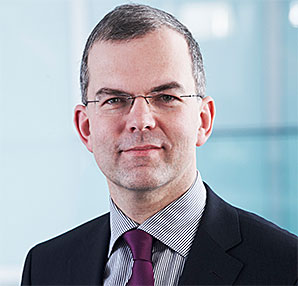If you coordinate asset classes such as bonds or equities to fit with your current stage of life, it's easier to save for retirement. However, according to an investigation carried out by Allianz, many investors still prefer secure, but low-interest, forms of saving. As a result, every third euro in Europe is deposited in a bank account, although the European Central Bank recently announced that it would continue with its low interest rate policy.
“This means that investors are losing interest and compound interest, which are vital in building up an additional income for retirement”, said Hans-Jörg Naumer, Global Head of Capital Markets & Thematic Research at Allianz Global Investors. “Saving based on life stage allows you to position yourself more broadly and invest in equities, for instance, in addition to bonds. This reduces the risk of inflation eating up the return from an investment, so that you aren't left with a considerable chunk of income missing in your old age.”
But how much of your portfolio should you dedicate to equities without losing sight of your personal risk limits? The tenth edition of the 'Allianz Demographic Pulse' newsletter shows how linking savings to stages in your life works.
Percentage of shares varies with age
The rule of thumb when it comes to saving according to life phase is: the higher the expected employment income over the remaining lifespan, the higher the amount that can be invested in higher risk forms of investment. Accordingly, equity allocation reaches its peak upon entry into professional life, and is reduced step by step from that point. As you get older, the number of higher risking investments should be slowly reduced in favor of more stable ones. But even on entering retirement, the number of higher-yielding forms of investment doesn't need to be slashed down to zero, as your monthly pension provides a source of income.
More time spent in retirement means an increasing need for retirement provision
In addition to the low interest rate environment, increases in life expectancy and excessively low birth rates make efficient saving absolutely vital. Statistically speaking, nowadays a 40-year-old German man can still expect to live another 40 years. When a German boy born today turns forty, he already has a life expectancy of 44 years. If the legal retirement age remained the same, the time spent in retirement would increase. At the same time, sinking birth rates - in particular in developed countries – are causing a shift in the ratio of pensioners and contribution payers. Smart provision is increasingly important against this backdrop.
